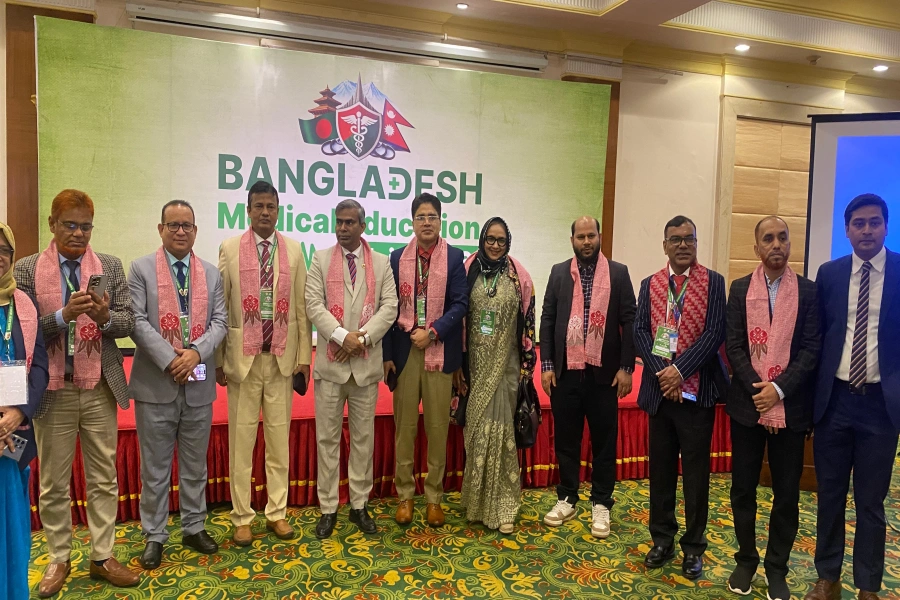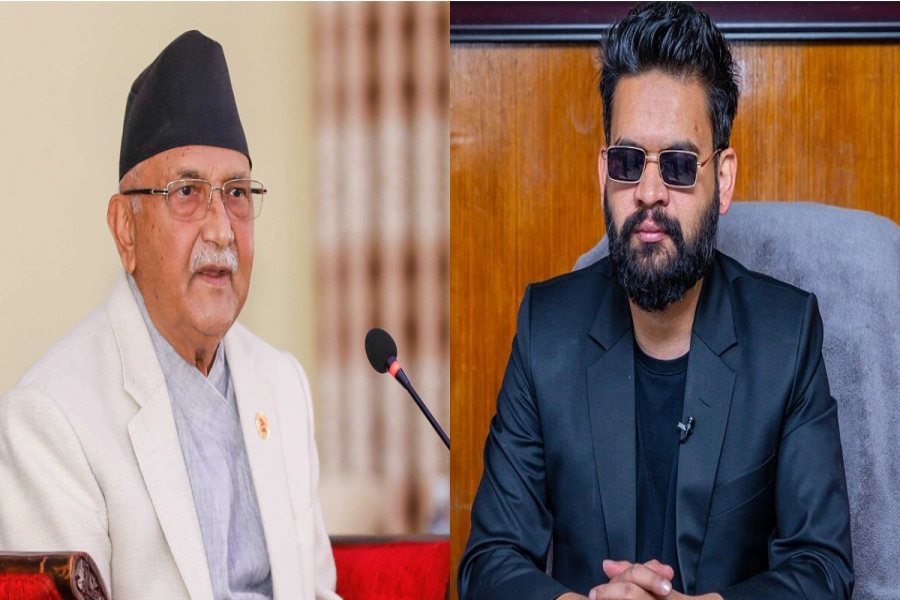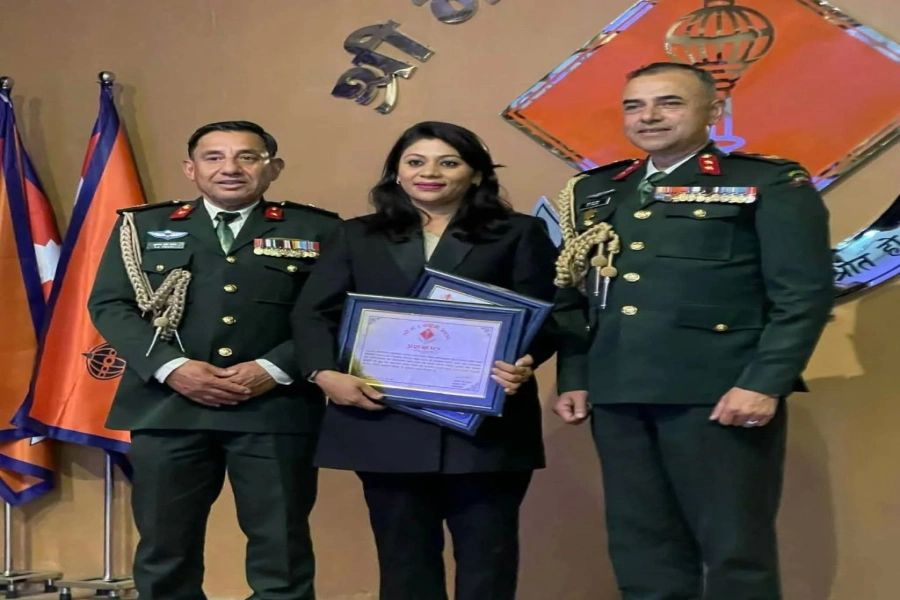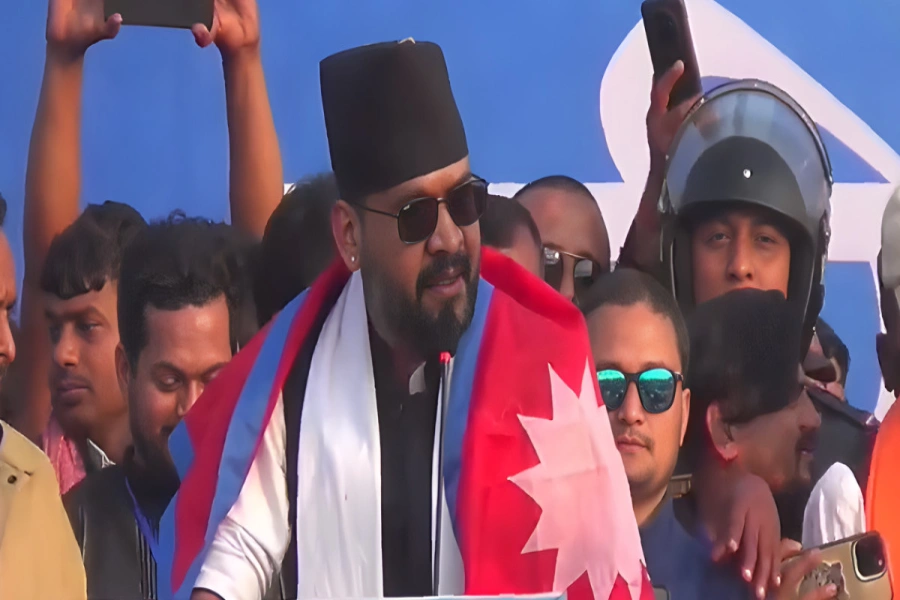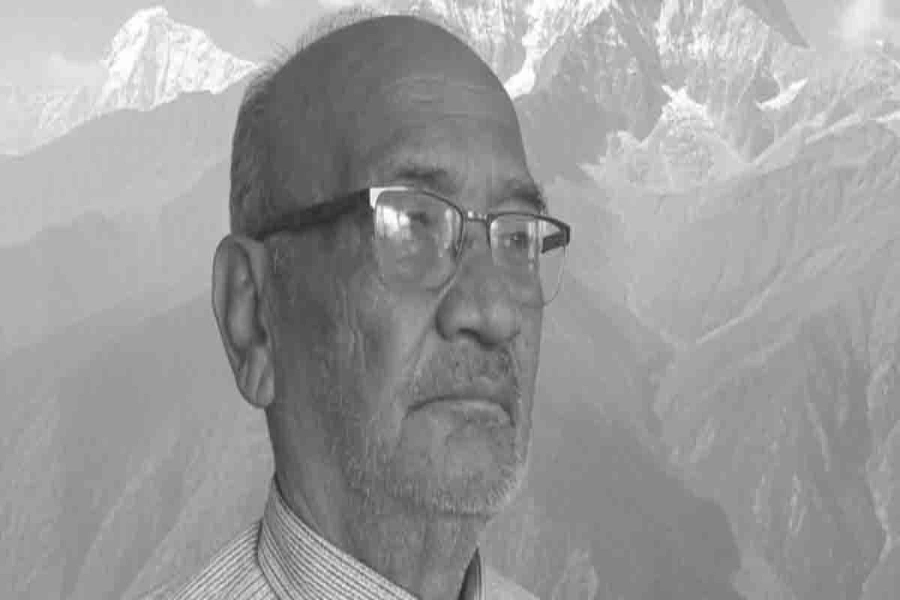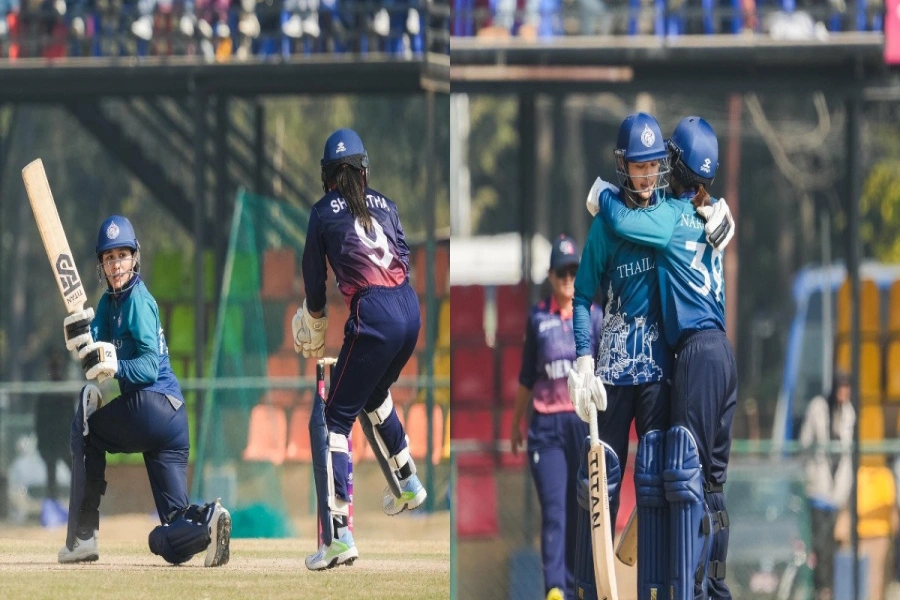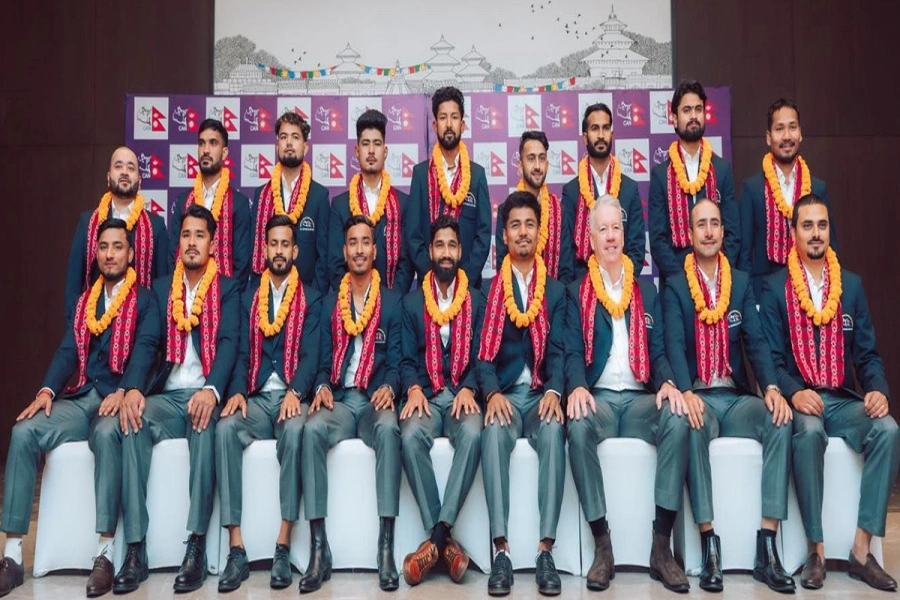Then he proceeds, in those causal but fortuitous coincidences that take place in Nepal all the time, to tell me about how Jhamak became the writer that she did. “Her parents bought her little sister a book. And Jhamak turned round and round in a rage for two days. She can’t talk, you see. So finally her father figured out, after a day or two, what was bothering her. And he said: would you like a book as well? And then she tapped her foot with joy. That’s how she talks, with her foot.” Jhamak, says her uncle, was always expressive. Once she drew him a rabbit that looked like it could run. He took her to Kathmandu once. Carried her down there. Once down, the poets and the literary people surrounded her. “It was like I was the one who couldn’t speak,” he remarks.
As we walk up the pine forest, her friend Elina Himbang tells me that Jhamak recently had a birthday party, and all the journalists came. We walk up a steep terraced field, and Jhamak’s mother tells that we should have taken the pathway, they have now built one. One of Jhamak’s younger sister is going to school. The second one is in the field, planting. In a giant pot, pumpkin rinds boil, food for the cows. We duck into a small doorway on the ground-floor and there is Jhamak, on the bed with the white bedspread. She smiles. The first thing you notice about Jhamak is her joi di vivre. “Namaste, Jhamak,” we say. Elina points out to me, in case I missed it, that Jhamak is answering—her two feet are placed in a neat namaste. She grabs a notebook and starts to write with her feet, and soon we are immersed in conversation.
“Why are you calling her Alina?” she corrects me, when I mispronounce her friend’s name. “She’ll find a hundred mistakes in your writing,” Elina laughs to me, when I sign the book and fumble with my raswas and dirghas. “Jhamak, you are getting thin,” Elina voices her concern. “Well, I’m a human being. Sometimes I gain weight, sometimes I lose it,” retorts Jhamak, writing quickly with her feet. Sometimes people who don’t know her misunderstand her, they go back saying this woman is quite arrogant from her replies, laughs Elina on our way back.
The one thing you notice about Jhamak is how little her disability seems to have disabled her. She cannot speak, but she is more expressive than many people with functioning vocal cords. Her answers are sharp and funny, always to the point. She cannot walk, but she has traveled farther than many people from her own community who are tied to the rhythms of planting and reaping, a farming, agricultural life that would have been her heritage had she been born whole. Instead, she was born unable to move, tied to her bed—and that by itself had made it possible for her to be a writer.
On the desk, I see a black and white photograph of a youthful, beautiful Parijat. It is no co-incidence that both of these women were disabled in some form. After all, how else would women find the time needed away from incessant and daily chores to devote to writing? Disability, in the case of these two women, had actually come as a blessing in disguise, freeing them up from women’s work and allowing them to fully concentrate on the passion of their lives—literature. All around her are piled books, books about the history of Ilam, books written by Nepali writers, contemporary, classics. In the desk I see a computer. Elina tells me that Jhamak not only folds her own quilts and makes her own bed, she also uses the computer with her feet.
In the book “Outliers”, by Malcolm Gladwell, the writer talks about how genius is not an accident. We are the products of our history and backgrounds. And sometimes, the very discriminations that we face in our lives will enable us to reach success in a way a privileged life wouldn’t. Gladwell uses the examples of the Jewish lawyers of New York, born around 1930s, who got a good public education but who were discriminated by all the WASP dominated firms. They set up their own low level firms which started to do aggressive corporate work that other firms wouldn’t touch—and when the boom for corporate takeovers happened in the 1970s, Jewish lawyers had honed their skills for a few decades and were ready to take on work nobody else could do. The Jewish lawyers, concludes Gladwell, were successful not despite their discriminated background—but because of it.
In Nepal, our people face more odds than people from other countries. And yet, as elsewhere, we find people in Nepal who’ve overcome those barriers to become successes in their own chosen fields. Jhamak, whispers her friends, now takes care of her family with the earnings of her writings. Poor girl, they used to leave her in a basket, now she takes care of them all, sigh her neighbors. Now that’s one remarkable story for a Nepali Brahmin woman, born in the hills with apparently insurmountable odds. And yet she triumphed.
Jhamak, it appears to me, is not a genius so extraordinary nobody else can replicate her feat. She was a woman of her time and place, who had the luck to have a supportive father who understood her desire to read a book, and supportive family members who were able to take care of her daily needs so she could focus on her writing. Dhankuta, with its laid-back multicultural tolerance and liberal air, provided the rest. Now if only we could see this, and ensure that other people with disabilities could also have the same quality of life that she has had.
For disabled in Valley, overcoming odds a daily struggle






